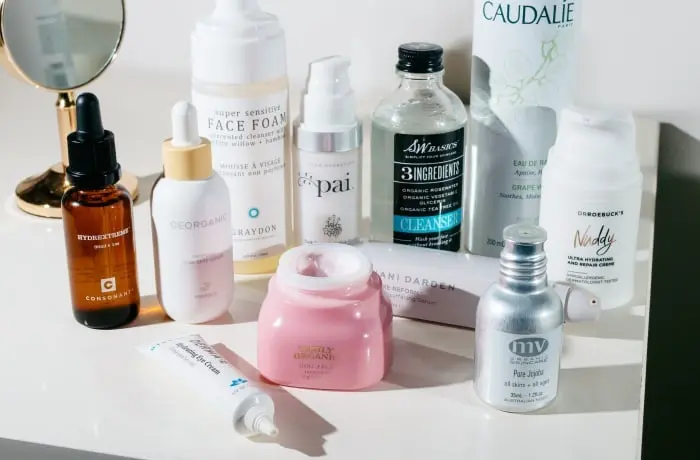The topic of skincare often raises the question: Is it really necessary? Skincare has become a significant part of many people’s daily routines, with a vast array of products and treatments available on the market. This article will explore the necessity of skincare from various perspectives, including dermatological, psychological, and social aspects.
The Function of Skin
Protective Barrier
The skin is the largest organ of the human body, serving as a protective barrier against environmental hazards such as bacteria, viruses, pollutants, and UV radiation. It also helps regulate body temperature and maintains hydration levels.
Sensory Organ
The skin is a sensory organ that enables us to perceive touch, temperature, and pain. These sensations are critical for protecting the body from harm and interacting with the environment.
Metabolic Functions
The skin plays a role in vitamin D synthesis, essential for bone health and immune function. It also contains sweat glands that aid in excreting waste products and regulating body temperature.
See Also: How To Take Care Of Sensitive Skin In Summer?
Basic Skincare Needs
Cleansing
Cleansing the skin removes dirt, oil, and impurities that accumulate throughout the day. This step is crucial for preventing clogged pores, which can lead to acne and other skin issues.
Moisturizing
Moisturizing helps maintain the skin’s hydration levels and strengthens the skin barrier. It prevents dryness and flakiness, keeping the skin smooth and supple.
Sun Protection
Using sunscreen protects the skin from harmful UV rays, which can cause premature aging, sunburn, and increase the risk of skin cancer. Sun protection is a non-negotiable part of any skincare routine.
Dermatological Perspective
Prevention of Skin Conditions
Proper skincare can prevent various skin conditions, such as acne, eczema, and dermatitis. For individuals with these conditions, a tailored skincare routine can manage symptoms and improve skin health.
Anti-Aging
Skincare products containing ingredients like retinoids, antioxidants, and peptides can reduce the appearance of fine lines, wrinkles, and age spots. These products help maintain a youthful appearance and promote healthy skin aging.
Dermatological Treatments
For individuals with specific skin concerns, such as hyperpigmentation, scarring, or severe acne, dermatological treatments like chemical peels, laser therapy, and microneedling can provide significant improvements. These treatments often require a foundational skincare routine to optimize results.
Psychological Benefits
Boosting Confidence
Healthy, clear skin can enhance self-esteem and confidence. For many people, the appearance of their skin affects how they feel about themselves and how they interact with others.
Stress Reduction
A consistent skincare routine can be a form of self-care, providing a sense of relaxation and routine. This can help reduce stress and contribute to overall well-being.
Social and Cultural Factors
Beauty Standards
Societal beauty standards often emphasize clear, youthful skin. This can drive individuals to invest in skincare to meet these expectations and feel accepted.
Influence of Media
Media and advertising significantly influence skincare trends and perceptions of beauty. Celebrities and influencers often promote skincare products and routines, shaping public opinions and habits.
Scientific Evidence
Studies on Skincare Efficacy
Numerous studies support the efficacy of skincare products and routines. For instance, research has shown that topical retinoids can reduce wrinkles and improve skin texture, while antioxidants like vitamin C can protect against free radical damage and brighten the skin.
Dermatological Research
Dermatological research continues to advance, providing insights into how various ingredients and treatments affect the skin. This ongoing research underscores the importance of evidence-based skincare practices.
Individual Variations
Skin Types
Different skin types (e.g., oily, dry, combination, sensitive) require different skincare approaches. Understanding one’s skin type is essential for choosing the right products and routines.
Lifestyle Factors
Factors such as diet, stress, sleep, and environmental exposure can affect skin health. Skincare should be tailored to individual lifestyles and needs.
Allergies and Sensitivities
Some individuals may have allergies or sensitivities to certain skincare ingredients. Patch testing and consulting with a dermatologist can help identify and avoid these triggers.
Economic Considerations
Cost of Skincare Products
Skincare can be expensive, with a wide range of products available at various price points. While some products are worth the investment, others may not be necessary for everyone.
Accessibility
Access to quality skincare products and treatments can vary based on geographic location, socioeconomic status, and other factors. It’s important to consider these disparities when discussing the necessity of skincare.
Ethical and Environmental Considerations
Animal Testing
Many skincare products are tested on animals, raising ethical concerns. Consumers are increasingly seeking cruelty-free products that do not involve animal testing.
Sustainable Practices
The skincare industry has a significant environmental impact, from packaging waste to the sourcing of ingredients. Sustainable practices, such as using recyclable packaging and ethically sourced ingredients, are becoming more important to consumers.
Conclusion
So, is skincare necessary? The answer depends on various factors, including individual skin needs, lifestyle, and personal preferences. From a dermatological perspective, basic skincare steps like cleansing, moisturizing, and sun protection are essential for maintaining healthy skin. Psychological and social factors also play a role in the perceived necessity of skincare. Ultimately, a personalized approach that considers individual skin types, needs, and values is key to determining the importance of skincare in one’s life.
Related topics:

